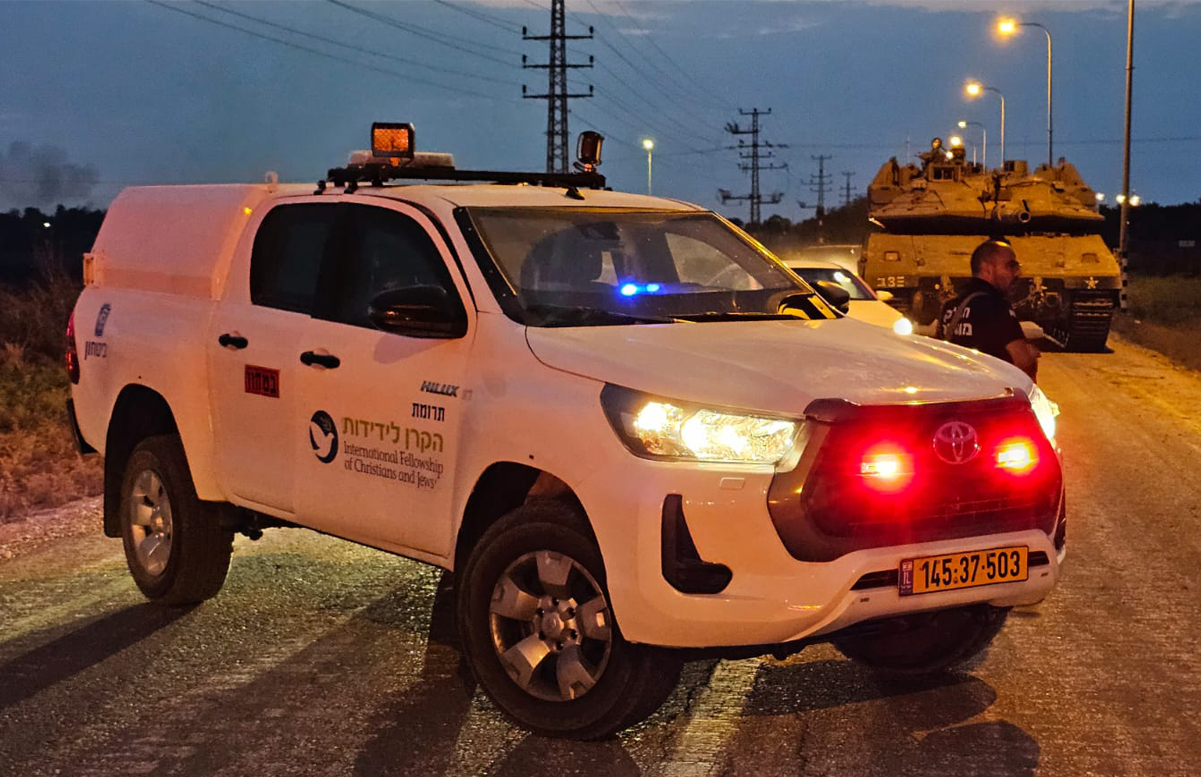Tens of thousands of evacuees from southern Israel are receiving charitable help from abroad following the deadly outbreak of violence there and in Gaza. An estimated 1,300 people were massacred in the Oct. 7 terror attack and thousands more have been injured in the fighting and daily rain of missiles.
Ariel Zwang, CEO of the American Jewish Joint Distribution Committee (JDC) in New York, said she has been comforting survivors since her arrival in Jerusalem last week. JDC has been tending to the humanitarian needs of Jewish and Arab communities alike since 1914, including the elderly, disabled, and others uniquely vulnerable during times of war and devastation. The organization also assists displaced Jews from Ukraine and other war-torn countries around the globe.
“All of the evacuees in Israel are now refugees in their own country,” Zwang told The NonProfit Times. “The numbers of those who have been forced to evacuate is at least in the tens of thousands and could be hundreds of thousands. The kinds of work that JDC does with all of Israeli society will allow us to map who these people are, especially those with disabilities and special needs, and assist government agencies to ensure they continue receiving the services they need.”
Friends of United Hatzalah, a donor-funded nonprofit in New York, has embarked on a $50 million fundraising drive to replenish lifesaving equipment for the nearly 7,000 volunteer paramedics, EMTs and doctors in Israel who are first on the scene to assist victims of shootings, burnings, bombings, and other wounds. An estimated 1,500 of these volunteers are now tending to victims and survivors in field hospitals throughout southern Israel.
“We have used an entire year’s worth of medical supplies during the past week and are in urgent need of more funds to purchase hemorrhagic bandages, oxygen tanks, defibrillators, bulletproof vests, and other protective gear,” Jeremy Cole, a spokesperson, told The NonProfit Times. “We’ve also had ambulances riddled by AK-47s or destroyed by fire or bombing. It’s expensive to repair ambulances and get them back on the road, and everything we’re raising right now is to support the ongoing mission of saving lives.”
Jewish Federations of North America (JNFA) has traditionally coordinated much of this activity from abroad. The organization, based in New York, last week announced a $500 million fundraising campaign for its Israel Emergency Fund and has already raised almost $400 million. The organization announced Tuesday an initial $10 million allocation to 20 organizations for housing, medical needs, trauma and psychological support, and other immediate and long-term help.
“There are a lot of great organizations in Israel doing great work, and JNFA is a major funder and partner of many of them including ours,” Zwang said. “One of the challenges during disasters such as this is you often get many organizations coming in who want to help and who may not have been here before. We saw that in Ukraine, so part of what JNFA is doing is helping to direct all that traffic.”
Jewish National Fund USA (JNF-USA), in New York, is housing displaced families in two high schools it operates in Israel for 160 American teens who have mostly returned home or are preparing to do so. Stefan Oberman, a JNF-USA spokesperson, said the organization is directly supporting these and more than 15,000 other evacuees.
Leaders are looking to raise an additional $10 million by the end of this month for JNF-USA’s Israel Resilience Campaign to provide food, toiletries, beds, clothing, psychological care and other services. “Jewish National Fund-USA is also the official fundraising arm of Israel’s Fire and Rescue Authority in the U.S.,” Oberman said. “Providing firefighters with additional equipment including firefighting wagons and rapid response vehicles is a key goal of ours over the coming weeks.”
The International Fellowship of Christians and Jews, in Chicago, has raised $9 million for emergency support. “All funds raised are going toward security efforts like installing new mobile bomb shelters, basic needs, psychological aid, and any other emergency needs as they arise,” said Elizabeth Gartman, a spokesperson.
The Anti-Defamation League, in New York, has an office in Israel with staff who “are going through what all Israelis are going through right now,” Adam Neufeld, ADL’s senior vice president, told The NonProfit Times. The organization isn’t directly administering humanitarian aid but is stepping up its worldwide efforts to combat antisemitism. ADL recently launched a “Workplace Pledge to Fight Antisemitism” campaign that so far has enlisted about 60 prominent companies including Accenture, Google, NASCAR, and UPS.
“Many people look at the horror of what happened and don’t understand the full context of what Hamas represents,” Neufeld said. “We are worried that the worst is yet to come and want people to understand that you can condemn what happened and oppose antisemitism, regardless of your position on the Israeli-Palestinian conflict overall. We are also talking with law enforcement and working to obtain grants to keep Jewish communal organizations in the United States safe.”










